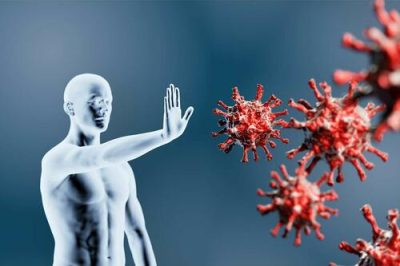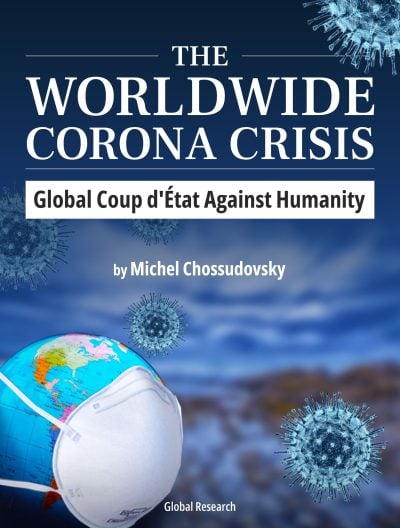Life After COVID-19: Perspectives of the World Security

All Global Research articles can be read in 51 languages by activating the Translate Website button below the author’s name.
To receive Global Research’s Daily Newsletter (selected articles), click here.
Click the share button above to email/forward this article to your friends and colleagues. Follow us on Instagram and Twitter and subscribe to our Telegram Channel. Feel free to repost and share widely Global Research articles.
***
On 11th of March 2020, the World Health Organization has confirmed that the spread of COVID-19 is the pandemic. However, the WHO, governments and non-governmental organizations worked on that newly identified threat at least since January 2020. According to the WHO, 13 billion doses have been given as of 3 May 2023. There have been 765,222,932 confirmed cases of COVID-19, including 6,921,614 deaths, reported to WHO. On 5th of May 2023, the WHO director general, Tedros Adhanom Ghebreyesus, announced ‘the UN health agency was downgrading Covid’s alert status’, but at the same time also delivered ‘a stark warning about its persistent threat’. ‘The disease still killed someone every three minutes’ he said. In the meantime, however, people have begun to die from more old-fashioned reasons, like war.
When did the pandemic end?
Because for the most Europeans the pandemic ended much earlier, 24th February 2022, with the start of Russia-Ukraine war. Thank you, Mr Putin, you have stopped that! Millions of Ukrainian immigrants, with no masks, not vaccinated made all the regulations more evident than a day before. Let’s remember, that for weeks before this military conflict the main topic of the North-Western discussions was how to punish the unvaccinated, what services should be limited to them and how to promote these disciplined citizens obediently receiving a booster after booster. And in almost one night, everything disappeared. What a lucky coincidence!
Some at war, others still under COVID…
During the last 15 months we could observe clear division between the sides at war and those still with COVID-19. Let’s take the example of Italy, which was initially much less involved in the policy of Western sanctions for the war in Ukraine. As a result, strict COVID-19 restrictions were still in force in Italy in the summer of 2022 (masks on beaches, ‘green passports’, etc.), when the rest of Europe already forgot about the pandemic. Asian countries, distancing themselves from Euro-Atlantic problems, also continued their consistent anti-pandemic policy. Thus, the history of the COVID-19 pandemic is characterised by self-centrism typical of the USA and Europe, recognising one’s own experiences and experiences as valid for the rest of the world. It is enough to consider previous, especially American experience (attempts?) with Bird Flu and West Nile fever or treating AIDS as a training ground for the pandemic policy in the North-Western World, while ignoring its epidemic significance in Africa.
Systemic racism
It was similar with COVID, when stories of ‘global solidarity in the face of a pandemic’ were accompanied by a brutal refusal to suspend sanctions against Iran at least for medicines and medical products. The WHO has equally consistently downplayed real health crises, like true pandemic outbreaks in Africa, unluckily related to real diseases such as polio (in Mozambique for the first time in 30 years), tuberculosis (return in 2020 to the level from three years ago), malaria killing the most people in 20 years, or cholera recorded in 2020 and 2021 in eight African worlds led by Nigeria, and finally Ebola which in 2022 returned to Uganda. No attention was given to the total collapse of the African routine-immunisation, as like inviting real epidemics to spill over to the rest of the world with immigrants and refugees. The systemic racism of the COVID policy, therefore, affected not only racial and ethnic minorities in developed countries, but was also clearly directed against the majority of humanity, currently inhabiting Southeast Asia, Africa and Latin America. COVID-19 thus only highlighted who is the beneficiary of the capitalist World-System and who manages the form of hegemony: the pandemic started when it was convenient for the centres of the West, and they too decided to end it.
Two ways of capitalist transformismo
Therefore, it can be argued that the distinction between ‘war or pandemic’ is only an expression of a broader division between geopolitics and state geoeconomics, or transnationalist management of global crises, such as climate change or biological threats. Of course, these tendencies can be competitive as well as complementary on other level. We can see that dialectical interrelation recognising the clear indications of the SARS-CoV-2 human origin, virus almost certainly produced in the military laboratories and knowing about American biolabs discovered during the war in Ukraine.
In all these cases, however, we are dealing with manifestations of the struggle for the future of capitalism. On the one hand, there are transnationalists, the Transnational Capitalist Class, who, thanks to their solidarity and aspirations for a Global Management (rather than the World Government), pushed for the universality of COVID-19, although due to the discredit of present transnational organizations, the strategies still had to be implemented by the again fragmented states. For the TCC, however, this is certainly not the end of trials, but at most the end of the beginning. Actions for a capitalist Superhegemony, strengthened by the global financial response to COVID, make look differently final Ghebreyesus’ words: “In most cases, pandemics truly end when the next pandemic begins”.
Albeit there is also the trend of traditional, rival imperialist (like we know from Lenin and Bukharin), implemented by the national ruling classes running competitive states. In the North-West we can identify these groups mainly with the national military-industrial complexes. Their traditional method remains war. And such one ‘happily’ broke out: first in Ukraine, soon perhaps in Taiwan. What’s worse, we know that, to paraphrase “In most cases, wars truly do not end, but only the new ones begin”. This is also completely realistic future.
Let us repeat this: interests intersect, and both trends can exchange not only personnel, but also methods among each other. It is not a coincidence that the United States, interested in the Superhegemony, unquestionable priority within the capitalist World-System, but still managed in a Lockean manner by the depoliticised economic level (especially financial), reach for such an old-fashioned method as war, and China, today the most representative for the Hobbesian stronger relations between economics and politics, played willingly the COVID card, although it was clearly on the table to beat all Chinese assets.
Sovereign response
Answering the title question ‘What new perspective to the World after COVID-19’, answer could be rather short-term pessimistic: possibly biological threat and for sure other wars, that is our devil’s alternative. The only doubt is whenever we can organise and in a long-term resist to the imperialist and capitalist transformismo processes. Are we able replace the declining hegemony with our own narration and regime of truth, but most of all with our activity? That is the challenge. Less even for transnational civil society, dreamed of by those disillusioned with the loss of influence on the politics of their own states, and more for exactly these nation states reviving sovereignty.
So, let’s take back control!
*
Note to readers: Please click the share button above. Follow us on Instagram and Twitter and subscribe to our Telegram Channel. Feel free to repost and share widely Global Research articles.
Konrad Rękas is a regular contributor to Global Research.
Featured image is from Zero Hedge
 The Worldwide Corona Crisis, Global Coup d’Etat Against Humanity
The Worldwide Corona Crisis, Global Coup d’Etat Against Humanity
by Michel Chossudovsky
Michel Chossudovsky reviews in detail how this insidious project “destroys people’s lives”. He provides a comprehensive analysis of everything you need to know about the “pandemic” — from the medical dimensions to the economic and social repercussions, political underpinnings, and mental and psychological impacts.
“My objective as an author is to inform people worldwide and refute the official narrative which has been used as a justification to destabilize the economic and social fabric of entire countries, followed by the imposition of the “deadly” COVID-19 “vaccine”. This crisis affects humanity in its entirety: almost 8 billion people. We stand in solidarity with our fellow human beings and our children worldwide. Truth is a powerful instrument.”
ISBN: 978-0-9879389-3-0, Year: 2022, PDF Ebook, Pages: 164, 15 Chapters
Price: $11.50 Get yours for FREE! Click here to download.
We encourage you to support the eBook project by making a donation through Global Research’s DonorBox “Worldwide Corona Crisis” Campaign Page.

